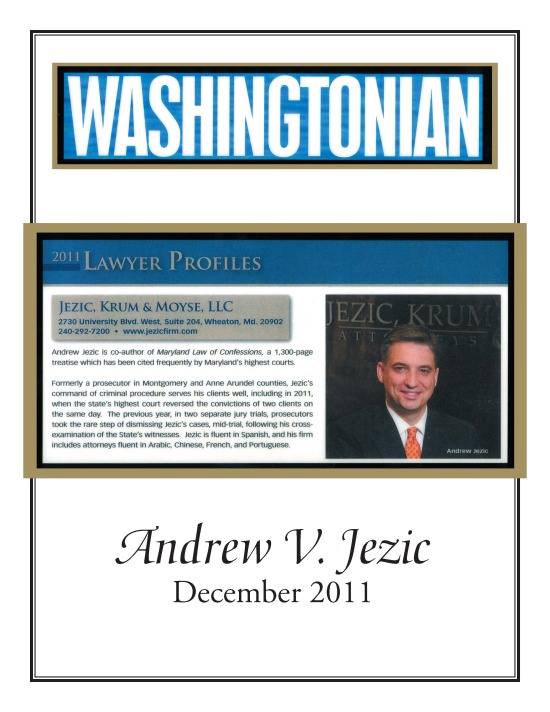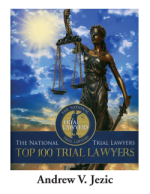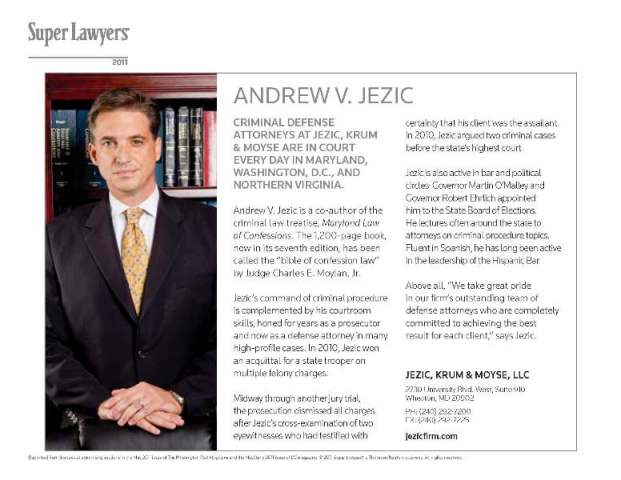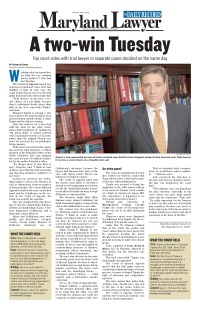Thomas v. State.
The Court of Special Appeals of Maryland held that the disclosure of a recorded statement that contains only the verbatim statements of the witness (facts) is not protected under the work product doctrine. In this case, appellant asserted that statements taken and recorded from two State’s witnesses by the defense’s investigator were not subject to disclosure by defense, and that the trial court erroneously ordered defendant’s disclosure under Maryland Rule 4-263(e)(6). Appellant argued that because the statements were not used during trial and were protected by the work product doctrine, they were not discoverable.
However, after a closer analysis of the Rule and defense’s disclosure obligations therefrom, and after reviewing the record and finding that defense counsel would use these statements during trial if one of the witnesses changed their statement, the Maryland Court disagreed.[1] Additionally, the Court found that because the recordings did not reveal the opinions, theories, or “creative thought process or mental impressions of counsel, but rather, they conveyed only the verbatim factual content of the witnesses’ statements” the trial court’s order compelling discovery under Maryland Rule 4-263(e)(6) was warranted.
The Maryland Court also affirmed the lower court’s ruling allowing evidence of appellant’s other crimes after a finding of the following: the evidence fell under one of the exceptions listed in Maryland Rule 5-404(b) or special relevance; clear and convincing evidence of the other crime; and that its probative value outweighed the danger of its prejudicial effect. In this case, appellant was convicted of first degree murder and the State attempted to show, through evidence of a prior drug deal with the victim in the case. Appellant asserted that because the drug charges originated from 2007, evidence from this case was too attenuated and would unfairly prejudice him. However, the Court notes that this drug case was postponed on September 10, 2009 and the victim “was murdered three days later, on September 13, 2009.” Here, the Maryland Court found that this evidence had special relevance towards establishing appellant’s motive.
Additionally, the State’s proffer that court records, testimony from the prosecutor in the drug case, and an audio and video recording of the transaction show his involvement by clear and convincing evidence was accepted by the Maryland Court of Special Appeals. Regarding the balancing test, outlined in Maryland Rule 5-403, the Court gave great deference to a trial court judge’s discretion, and in this case found that because there was little explanation regarding the killing, this evidence was probative and outweighed its prejudicial effect.
[1] See Md. Rule 4-263(e)(6) (2013); see e.g., State v. Young, 767 P.2d 90, 93 (Or. Ct. App. 1989) (“if defense counsel, even though not certain, can reasonably predict that she will use certain exhibits to impeach a State’s witness, she must give timely discovery to the prosecutor”).






Leave a Reply